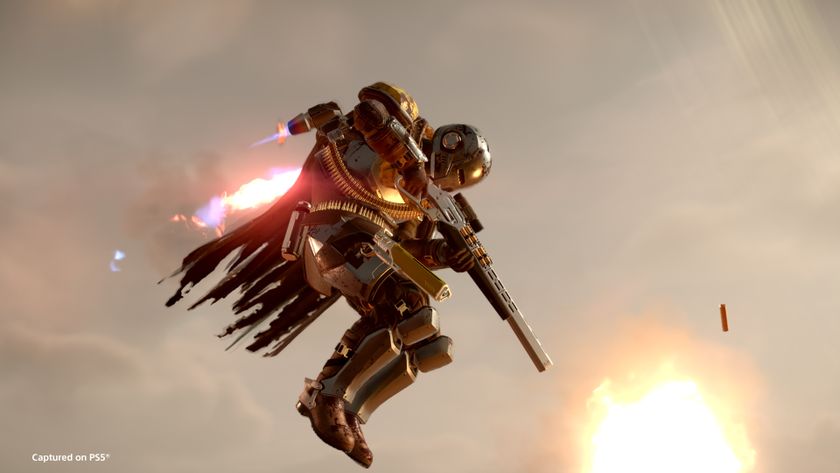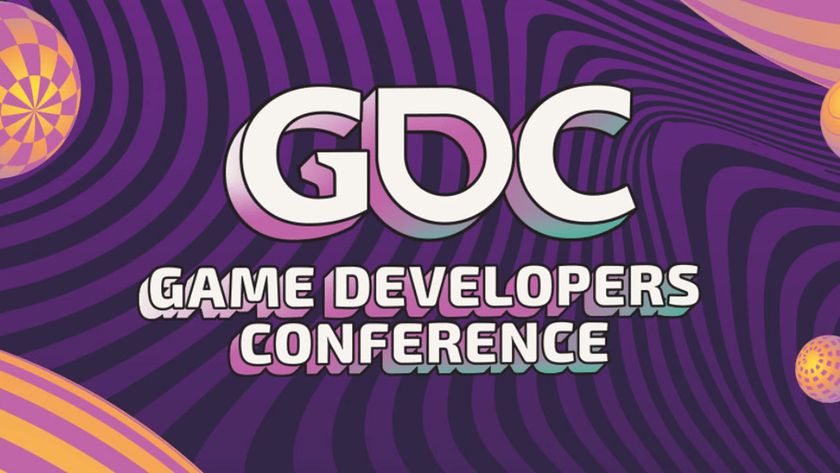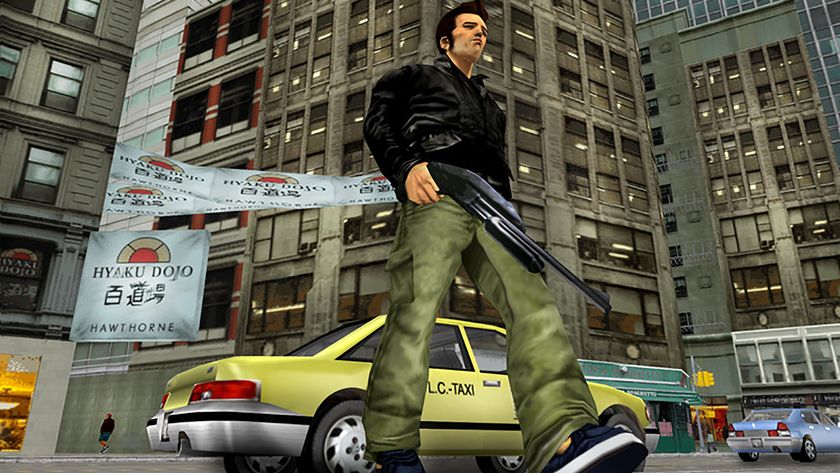BioWare fans have a Mass Effect
BioWare bigwig Ray Muzyka on fans' reactions to SecuROM shenanigans
Every gaming-news outlet in town made its way to last night’s EA pre-E3 event in downtown San Francisco, so grabbing time with muckety-mucks was no easy task. That’s why we caught up with BioWare General Manager and EA Vice President Ray Muzyka outside the men’s bathroom. Unfazed by the ongoing flushes from fellow party-goers, he chatted with us about piracy protection, PC-gaming love, and the power of the people.
PC Gamer: Obviously, PC gamers are very excited for Mass Effect PC - we’re reviewing it in our August issue - but we’re wondering, why the partnership with Demiurge to develop the game for the PC? Some people in PC gaming have wondered, “Does this mean that Bioware is going all console?
Ray Muzyka: No, we were really focused on developing Mass Effect for PC, so we partnered with a great development team, Demiurge, and we also had a whole bunch of people from the original Mass Effect team that worked on it from BioWare. We took months of design work together and collaborative design, really just investing in making sure the higher resolution…looked really great, and also a lot of inventory and interface changes - tactical heads up display and squad command and run-and-gun without the hotkeys, but it was very much a collaborative effort, and we had great partners.
PC games are incredibly important to BioWare, we’re not going to drop them - don’t worry about that.

PCG: There’s been a lot of talk about the DRM that was announced for Mass Effect PC and for SPORE - obviously, the original scheme has been changed. Whose original idea was the every-10-days authentication, and whose idea was it to change that? What happened?
RM: Well, you know, with the DRM, we’re making sure we can deliver a great experience to our fans, and also trying to make sure that the teams that work for three years or more on our games, hundreds of people, actually get their work into the hands of people who pay for the content. That’s really important to us. We have a great community, and we really trust them, so it’s disturbing when you see people outside that community that don’t trust us back, and then don’t buy the content.
I think the original idea... we were very much in an exploratory mode when the rumor about this started up, and I think we listened to the feedback. That’s one thing we do very, very ardently at BioWare - we care a lot about the fans, we care about the community feedback, and we respond to it. We saw the results. We’re basically making sure that it’s a good experience for fans: they don’t have to put the disc in the drive, they can install it on multiple machines, and it’s going to be a one-time authentication thing. Basically, it’s easy to use.
PCG: Power to the people!
RM: Exactly. And you know, it’s not a bad thing. I think it’s a great thing when developers get feedback from the fans, and they actually make the game better as a result. That’s how we get a better industry, that’s how we get better games.
PCG: What do you think about the idea that Stardock’s (Sins of a Solar Empire) Brad Wardell has floated, that all digital rights management is ineffective, that if a pirate wants to crack it, they’re going to crack it, so why not just put everything out there?
RM: We’re really looking at digital rights management and security as, you’ve gotta actually make great content, and if you wanna prevent piracy, it’s all about delivering the experience your fans are gonna want to pay you for, and one they’re gonna want to continue to be immersed in as the content continues to unfold over time. So we’re looking at games like Mass Effect and Dragon Age, and other games in the future, the same way - we’re seeing that we have an obligation to respect our fans and deliver something they’re gonna really want to continue to buy and be part of. It’s sort of a “pull” not a “push,” right? It’s, “Gimme the carrot, gimme something that’s really good.” That’s the real copy protection, that’s the best kind of copy protection you can do, and maybe Brad has the same kind of theories on that. In that sense, I agree. I think it’s about whatever you do, you make it accessible and intuitive and easy, and it runs really smooth - you give definite benefits to the fans, and then beyond that, you wanna make it a powerful inducement to continue.
Sign up to the 12DOVE Newsletter
Weekly digests, tales from the communities you love, and more













